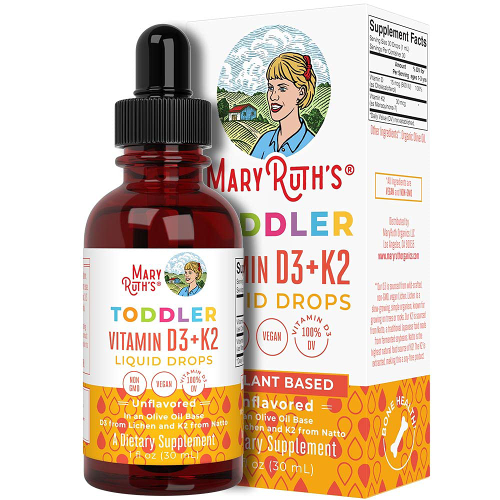Vitamin D, often dubbed the "sunshine vitamin," is crucial for maintaining bone health, bolstering the immune system, and a host of other bodily functions. However, with the prevalence of vitamin D deficiency and the increasing reliance on supplements, a common question arises: when is the best time to take vitamin D? This article aims to shed light on this topic, providing you with evidence-based insights to optimize your vitamin D intake.
Understanding Vitamin D and Its Importance
Vitamin D is a fat-soluble vitamin that plays a pivotal role in allowing the body to absorb calcium, which is essential for the formation and maintenance of healthy bones. It is also vital for immune function, and brain health, and may even have a role in preventing conditions like multiple sclerosis and certain types of cancer.
The Sun and Vitamin D: A Natural Symbiosis
Sun exposure is the most natural way to get enough vitamin D. When your skin is exposed to sunlight, it synthesizes vitamin D from cholesterol. However, factors like skin pigmentation, geographic location, and lifestyle can affect how much vitamin D your body produces.
Vitamin D Deficiency: A Silent Epidemic
Vitamin D deficiency is a global health issue affecting millions. Darker skin, limited sun exposure, and a diet low in fortified foods can lead to low vitamin D levels, which are associated with bone disorders, cognitive health issues, and a higher risk of certain diseases.
The Role of Supplements in Combating Deficiency
Supplements can be a practical solution for those unable to get enough vitamin D through sun exposure or diet. Vitamin D supplementation helps maintain adequate levels in the body, ensuring the proper functioning of health systems and prevention of deficiency-related conditions.
When to Take Vitamin D: Timing Matters
The body's ability to absorb vitamin D can be influenced by the timing of supplementation. Taking vitamin D with the largest meal of the day, which often contains fats, can significantly enhance absorption and ensure maximum effectiveness.
The Synergy of Vitamin D with Meals
Consuming vitamin D supplements with a high-fat meal, particularly one with healthy fats like those found in fatty fish or olive oil, can improve the vitamin's bioavailability. This is because vitamin D is a fat-soluble vitamin and is best absorbed when taken with dietary fats.
Morning or Evening: Does It Make a Difference?
While some studies suggest that taking vitamin D in the morning may be preferable to avoid potential sleep disturbances, the evidence is not conclusive. The key is to add vitamin D to your supplement routine at a time that aligns with your meal patterns for enhanced absorption.
The Impact of Other Vitamins and Minerals
Vitamin D's function can be influenced by other vitamins and minerals in the body. For instance, vitamin D works in tandem with vitamin K and magnesium, which are important for bone health and the proper utilization of calcium.
Dosage and Frequency: How Much Is Enough?
The recommended daily dose of vitamin D varies based on age, health conditions, and individual needs. Healthcare providers or a registered dietitian nutritionist can guide the appropriate dosage for your specific vitamin D needs.
Vitamin D and Immune System Enhancement
Have you ever wondered how a simple vitamin can be a game-changer for your immune health? Vitamin D, often hailed as the "sunshine vitamin," is a fat-soluble vitamin that plays a pivotal role in bolstering our immune system. When our skin is exposed to direct sunlight, it synthesizes vitamin D, which then acts to modulate the immune responses. Adequate blood levels of vitamin D are associated with a well-functioning immune system, which is crucial for fending off pathogens and reducing the risk of chronic illnesses.
However, not everyone can soak up enough sunshine to meet their vitamin D needs, especially during the winter months or in regions with limited sunlight. This is where vitamin D supplements step in as a practical solution. By maintaining optimal vitamin D levels through dietary supplements, individuals can support their immune health, potentially reducing the incidence of infections and immune-related conditions. It's a simple yet effective way to keep your body's defense system in top-notch condition.
Vitamin D: A Fat-Soluble Vitamin Essential for Health
Vitamin D stands out in the realm of nutrients as a fat-soluble vitamin, which means it requires dietary fat for proper absorption. Unlike water-soluble vitamins that can be excreted easily by the body, fat-soluble vitamins like Vitamin D are stored in the liver and fatty tissues. This characteristic underscores the importance of pairing Vitamin D supplements with meals that contain some level of dietary fat. Consuming high-fat foods, particularly those rich in healthy fats like omega-3s, can significantly enhance the body's ability to absorb this crucial nutrient, ensuring you reap the full spectrum of its benefits.
However, it's important to strike a balance. While high-fat foods can aid in the absorption of Vitamin D, going overboard with unhealthy fats can lead to other health issues. For those who prefer a fat-free meal or are on a low-fat diet, it's still possible to support Vitamin D uptake by choosing foods with naturally occurring fats, such as avocados or nuts. Remember, the goal is to maintain an optimal blood level of Vitamin D, which is critical for bone health, immune function, and overall well-being. Ensuring that your diet includes a moderate amount of healthy fats will help you achieve this balance.
The Link Between Vitamin D and Mental Health
The conversation around Vitamin D has expanded beyond its traditional roles in bone health and calcium regulation to include its impact on mental health. Emerging research suggests that vitamin D insufficiency may be linked to a variety of mental health issues, including depression and anxiety. Maintaining adequate blood levels of Vitamin D is thought to contribute to neurotransmitter synthesis and brain health, which in turn can influence mood and cognitive function. This connection highlights the importance of monitoring Vitamin D levels as part of a comprehensive approach to mental wellness.
For women's health in particular, the implications of Vitamin D on mental health are significant. Hormonal fluctuations can affect mood and the risk of depression, and adequate Vitamin D levels may help mitigate these effects. It's not just about taking a supplement; it's about ensuring that the supplement is effective by considering the timing of intake and the composition of the accompanying meal. A fat-free meal might not be the best choice when taking Vitamin D, as the presence of dietary fat can enhance its absorption and, potentially, its positive impact on mental health.
Balancing Vitamin D and Calcium for Bone Health
When it comes to maintaining strong bones, the dynamic duo of vitamin D and calcium takes center stage. Vitamin D is essential for calcium absorption in the gut, which means without sufficient vitamin D, you could end up with too much calcium floating around in your bloodstream rather than being used to strengthen your bones. This imbalance can lead to a variety of health issues, including sleep disorders and even cardiovascular problems. Ensuring you have enough vitamin D is crucial for calcium to fulfill its bone-fortifying destiny.
But here's the catch – while vitamin D helps absorb calcium, too much vitamin D can lead to an excess of calcium in the body, a condition known as hypercalcemia. This is why it's important to strike the right balance between these two nutrients. A diet rich in high-fat foods can enhance the absorption of this fat-soluble vitamin, which in turn helps manage calcium levels. So, next time you're reaching for a vitamin D supplement or a fat-free meal, remember the importance of this delicate dance for your bone health and overall well-being.
Special Considerations for Older Adults
Older adults may have a poor appetite, reduced sun exposure, and other health conditions that affect vitamin D status. They may require a higher dose of supplements to maintain strong bones and overall health.
Vitamin D and Women's Health
Women, particularly those who are pregnant or breastfeeding, have unique vitamin D needs for their health and the development of their child. Ensuring adequate vitamin D levels is important for women's health, including cancer prevention and bone maintenance.
Addressing High-Risk Groups
People with darker skin have elevated levels of melanin, which can hinder the skin's capacity to generate vitamin D from sunlight. Consequently, individuals with dark skin may need to be particularly mindful of their vitamin D intake to prevent deficiency.
The Best Foods for Natural Vitamin D Intake
Dietary sources of vitamin D include fortified foods, fatty fish, and egg yolks. Including these food sources in your diet can help maintain adequate vitamin D levels, especially when sunlight exposure is limited.
Vitamin D Supplementation and Cognitive Health
Research has linked vitamin D levels to cognitive health, suggesting that maintaining sufficient levels may have a protective effect against cognitive decline, particularly in older adults and those with health conditions like multiple sclerosis.
The Connection Between Vitamin D and Sleep Quality
Some evidence indicates that vitamin D supplementation might influence melatonin production and, consequently, sleep patterns. Those experiencing poorer sleep quality may need to consider the timing of their vitamin D intake.
Maximizing Vitamin D Absorption
To enhance absorption, it's recommended to take vitamin D supplements with a meal that includes healthy fats. Avoid taking it with a fat-free meal or on an empty stomach, as this can hinder the vitamin's bioavailability.
The Endocrine Society's Fact Sheet on Vitamin D
The Endocrine Society provides a comprehensive fact sheet on vitamin D, offering guidelines on optimal levels, supplementation, and factors affecting vitamin D status. Consulting this resource can be beneficial for those seeking to understand their vitamin D needs better.
Vitamin D Supplementation: A Case Study
A study involving a group of individuals with low vitamin D levels found that those who took their supplement with a high-fat meal had significantly higher vitamin D blood levels after 12 weeks compared to those who took it with a fat-free meal or on an empty stomach.


Can taking vitamin D at night cause sleep disturbances?
While some evidence suggests that taking vitamin D at night might interfere with melatonin production and sleep quality, the research is not definitive. It's best to take vitamin D with your largest meal of the day to enhance absorption, regardless of the time.
How much vitamin D should I take daily?
The daily dose of vitamin D varies depending on age, health conditions, and individual needs. The Endocrine Society provides guidelines, but it's essential to consult with a healthcare provider or a registered dietitian nutritionist for personalized advice.
Can I get enough vitamin D from food alone?
It's possible to get enough vitamin D from food sources like fatty fish, fortified foods, and egg yolks, but many people may still need supplements, especially if they have limited sun exposure or dietary restrictions. A healthcare provider can help determine if supplementation is necessary for you.
The best time to take vitamin D is with a meal that includes healthy fats to ensure optimal absorption. Factors such as sun exposure, skin pigmentation, and diet play a role in determining vitamin D levels. It's important to consult with healthcare professionals to tailor your vitamin D supplementation for maximum effectiveness and to address individual health needs. Consistency in your supplement routine and awareness of the factors that influence vitamin D status are key to reaping the health benefits of this essential nutrient.













